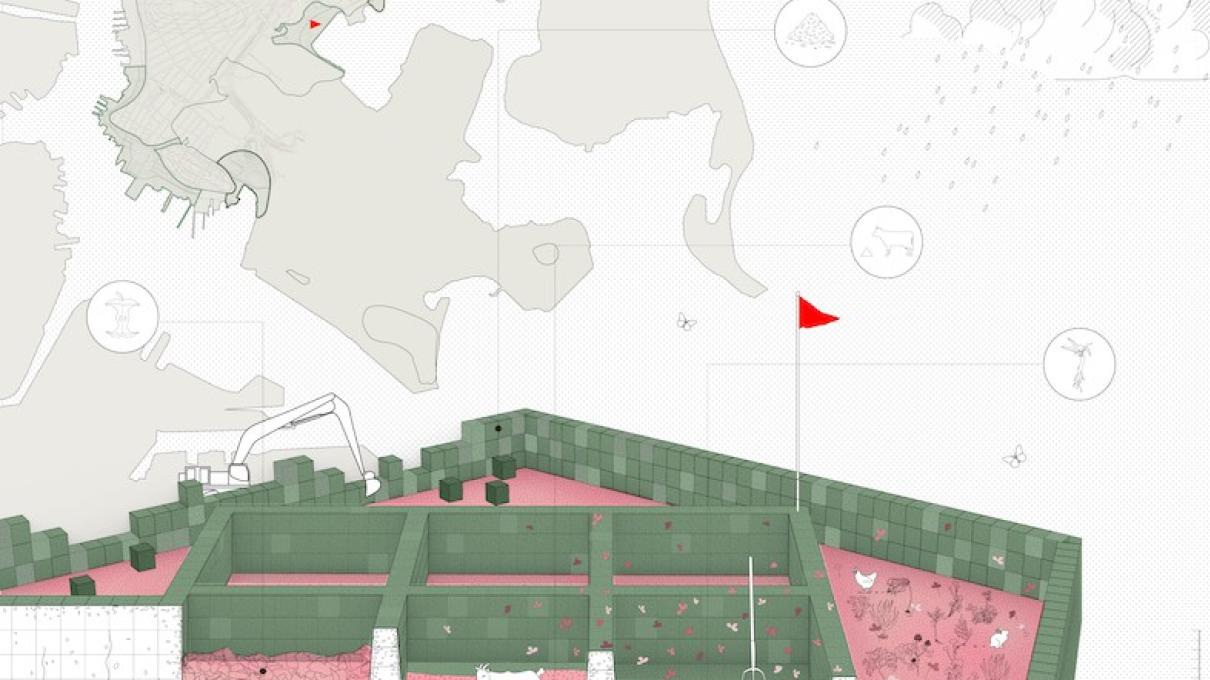Composting Worlds by Rania Ghosn is exhibited at the 6th Tallinn Architecture Biennale, “Edible; Or, The Architecture of Metabolism”. The biennale examines food and geopolitics as planetary phenomenon and large-scale territories via maps, drawings, films and visualizations of mass migration and food sourcing in challenging environmental conditions and conflict zones.
Composting Worlds: The Plantionocene is a paradox of plenty. The bountiful abundance of industrial agriculture has both destroyed landscapes and ecologies and decreased access to sufficient, affordable and nutritious food. In the United States, more than 40 million people struggle to feed themselves, unevenly impacting population along class, gender, race, and ethnic lines. East Boston is one such microcosm of food insecurity and environmental injustice. A food desert and a historical immigration entry point, the neighborhood is a compost of infrastructural projects—landfills, highways, tunnels, and the airport—with compounded environmental and climatic externalities. The project “Composting Worlds” emerges from and composes with such urgent trouble to cultivate hospitable refugia among inherited ruins.
6th Tallinn Architecture Biennale (TAB)
Edible; Or, The Architecture of Metabolism
Curated by Lydia Kallipoliti, Areti Markopoulou in collaboration with Chief Local Advisor Ivan Sergejev.
September – November 2022
